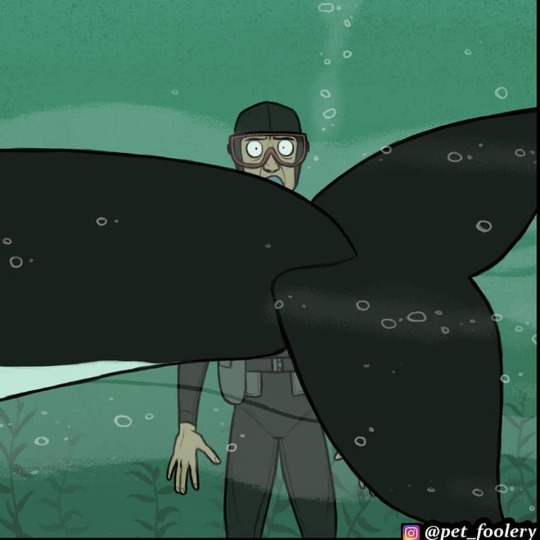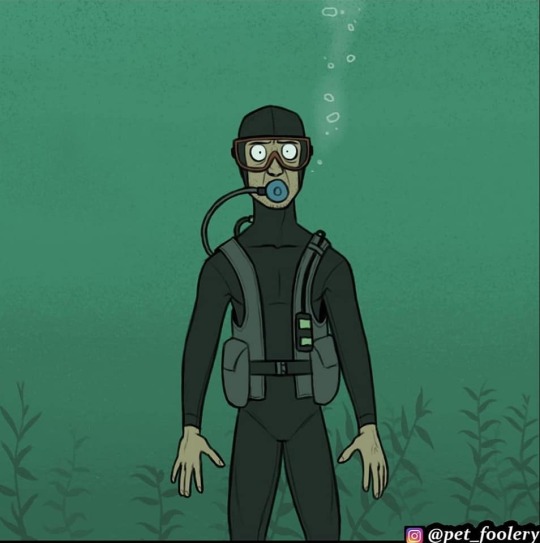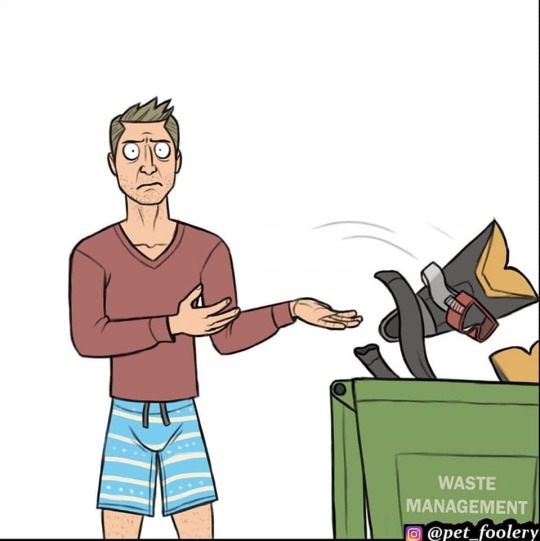Wildlife Sciences student interested in animal welfare, conservation, and all in between amateur photographer & professional outdoor cat hater likes marine life a whole bunch but for some reason is geared towards terrestrial life instead currently panicking due to physics
Don't wanna be here? Send us removal request.
Text
How do I know if that reptile TikTok is bad?
Or youtube video, or instagram post, etc.
Look: I get it. You see the cute lizard video, you watch the cute lizard video. But is the lizard video really cute?
Well, that can be hard to tell.
Like, really, really hard to tell. Not every animal situation on the internet is cut-and-dry, good or bad. Most of them, you don’t have the full context! You can’t tell how the person’s husbandry is, what the enclosure is like, or how they keep up with daily care.
Well, maybe this guide can help a little bit. This is meant to be used as a quick reference when evaluating short internet content. It’s not super useful for dedicated pettubers, because for those, you usually have a person explaining their entire ethos and showing you things like husbandry and care. Full breakdowns and evaluations for those are a lot more complicated.
What this guide is for is for when your mom sends you a viral video of a lizard and you have to explain to her that you’d really, really like her to stop sending you videos of animal abuse, or when you see someone doing something really dangerous with an alligator. I know this is a long post, but there’s a lot of things to watch out for!
Source: Is it from Jay Brewer (prehistoricpets/reptilezoo) or Brian Barcyzk (snakebytetv)? It’s bad. Stop giving them your attention/ad clicks. It just tells them that nobody cares about how miserable their animals are.
I know that’s flippant, but seriously, look at the source of your content. If it’s a facility that’s known for animal mistreatment, then don’t watch their stuff. Easy as that! Don’t feed into the content machine- don’t tell the algorithm that their content is what you want to see. Even if the individual post is ok and doesn’t show any animal mistreatment, people like Jay and Brian are known for their poor husbandry practices overall. This is the kind of enclosure Brian thinks it’s ok for a giant snake to spend its entire life in.
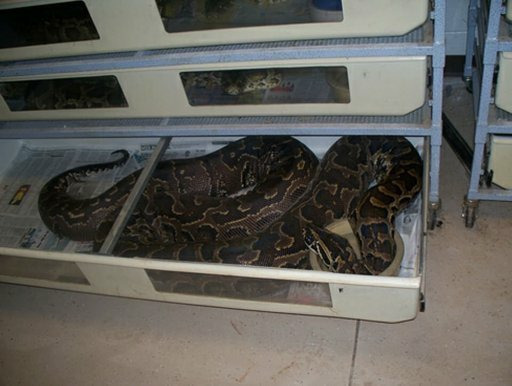
Seriously, don’t give that man any more attention. Lots of breeders use racks, but this is at the low end of bad for racks. If you see content from someone who’s got a history of bad care, don’t watch it!
Oh, and how do you find out if they have a history of bad care? Google “Name here+bad care” and see what comes up. If it’s a one off thing where like, one animal is in crappy condition? Might be fine, they might have course-corrected. If it’s pages and pages of stuff? Red flags all around.
Venom: Is somebody taking a selfie with a venomous snake? It’s bad.
They’re putting themselves in danger for social media attention. Even if it’s a choice they made and they say they’re not hurting anybody else, they are. By putting themselves at risk unnecessarily, they put other people at risk. If they get bitten, the dose of antivenin that they receive is probably from a zoo, where actual educators put themselves at risk for conservation. Antivenin is expensive, and in many cases, you can’t even get it. For instance, in the US, there’s only one antivenin commercially available to hospitals for treating venomous snakebites. It’s called CroFeb, and according to The Washington Post, the price for one hospital vial is about $2,300. A typical treatment dose? That requires four to six vials. So for a single, smaller rattlesnake bite that would need four vials of antivenin, the cost is $9,200.
And that’s if you’re lucky enough to get bitten by a rattler and to be in range of a hospital that has the antivenin. If you get bit by say, a cobra? That antivenin is coming from a zoo or research facility, and if there’s not one nearby that can help you, you are SOL. And quite possibly DOA.
Don’t take selfies with venomous snakes. Just don’t do it. Don’t support social media personalities who do it.
However… if the person is using snake hooks, using the proper grip on the snake if they are holding it, and taking proper precautions by having somebody else to spot and film… then it might be fine! There’s lots of good reasons to handle venomous snakes, believe it or not. One of my favorite reptile facilities that posts venomous animals is the Kentucky Reptile Zoo. KRZ is one of the most important venom facilities in the US- they keep all kinds of species and milk them for their venom, which not only goes to make antivenom but also is used for things like cancer research. You can bet when they post pictures of someone handling a venomous snake, that person is well-trained and is handling that animal for a purpose.
Egg cutting: It’s probably bad.
This is the practice of cutting open snake eggs before it’s time to hatch. Sometimes keepers need to do this because a baby is struggling, and that’s ok! Sometimes keepers do this to show off the patterns, and that’s really not ok! It can cause severe damage to the hatchlings. Furthermore, it’s not like it’s a surprise. Breeders who cut eggs already know have a really good idea of what’s going to be inside because they’re breeding for color morphs- they know the genetics they put together. They’re just doing it for attention, and not thinking of what’s best for the animal. It’s like an unboxing video that can lead to dead baby snakes. Not cool.
Inappropriate feeding: If somebody is giving their lizard a hot dog, it’s bad.
Animals need to eat, but what are they being fed? Is it a diet item appropriate for the species? Even if it’s appropriate, how much is being fed? Is the animal being fed according to an appropriate schedule? This varies so much from individual to individual, but in general, appropriate food includes whole prey (and if it’s being videoed, it should always be pre-killed!), most fruits and veggies, and things like small pieces of fish and chicken for monitors/tegus. Here are some things that are never acceptable: processed meat, like chicken nuggets, hamburgers, and hot dogs. Pizza. Candy. Bread. Ice cream. (I have seen social media of all of these. Some from “professional” reptile keepers.)
Live feeding: Reputable facilities and responsible owners aren’t going to film their reptile killing a live rodent and put it on TikTok for your entertainment.
While some keepers do need to feed live, responsible owners know that live feedings must be supervised and given their full attention because rodents can fight back. If they’re filming, they aren’t taking good safety measures. Insects are generally fine, though, so long as it’s a standard feeder. Crickets, roaches, mealworms, superworms, hornworms… stuff like that isn’t going to hurt the animal eating it. If you see somebody trying to feed their gecko a bee or something? That’s bad content.
Obese animals: A chonky reptile is a reptile that’s probably dying a slow, painful death from fatty liver disease.
This can be really difficult to assess, because most people don’t know what a healthy reptile actually looks like… and because the norm for pet reptiles on social media is obesity. Generally, the best thing to do is look for pictures of those animals in the wild and compare. Wild animals are often a lot skinnier than their captive counterparts, but you’ll get the gist pretty quickly of what the animal is supposed to look like. No species of reptile naturally has fat rolls (although big skin wrinkles aren’t uncommon, and some animals have heavier bodies than you might expect).
Examples of obese reptiles on social media include:
Margo the bearded dragon
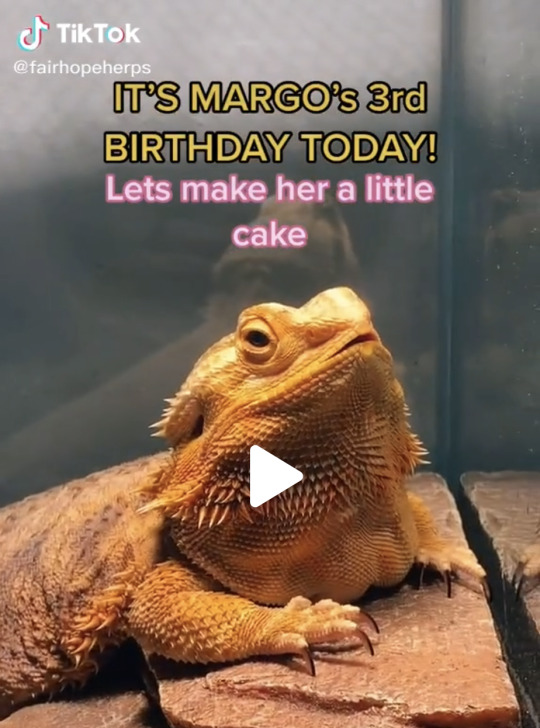
Macguyver the tegu
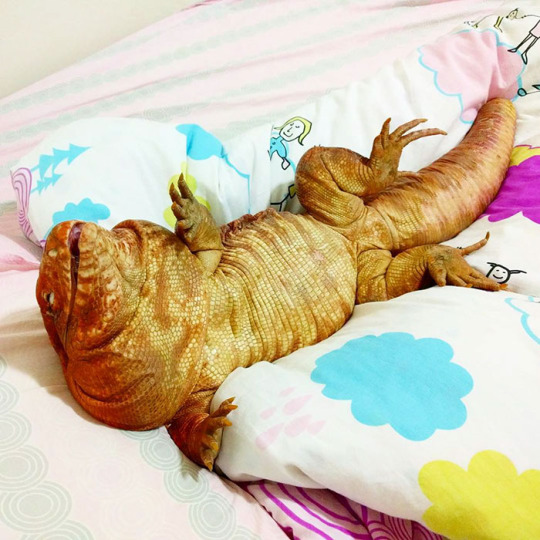
Pretty much everything Jay Brewer/Prehistoric Pets/The Reptile Zoo owns
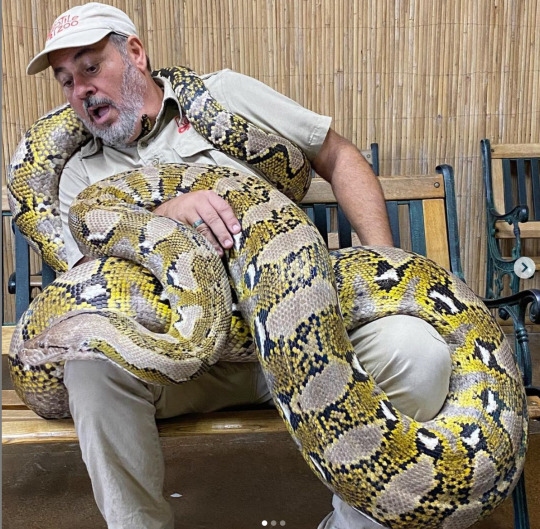
Cats, dogs, and other pets: There is no safe way for a cat and a reptile to interact. Period.
If there’s a cat in the video and the cat is touching a reptile, it ain’t safe. I have written extensively about this but the gist of it is that cats harbor bacteria that is super toxic to reptiles, and even the most gentle pat can turn into a scratch that gets infected and is extremely hard to treat. It stresses the reptile out and in some cases can be super dangerous for the cat, too, if the reptile fights back.
However… if the reptile interaction is with another animal of the same species and they’re just kinda chilling in the same space, that’s fine. Some animals actually do better living in social situations, like alligators, rattlesnakes, garter snakes, mourning geckos, and dart frogs! Some animals do just fine hanging out with other animals like them- if you see a video with a bunch of bearded dragons in it and they’re not all sharing the same cage and they’re just chilling, that’s probably fine!
Intentionally aggravating the animal: Being a jerk is bad.
Yeah, I know, the video of that Budgett’s frog going REEEEEEEEE sounds hilarious, but that animal’s in a lot of distress! Don’t poke animals with sticks to get them to make noise! That’s mean! If the animal is flinching away from a stimulus, or squinching its eyes shut really tight, those are both signs that something’s wrong here. Reptile body language can be really hard to read, so you might need to google around or ask someone.
Holding an amphibian: Usually bad.
Not a reptile issue, really, but worth addressing because reptiles and amphibians get lumped in together. Amphibians have porous skin and are vulnerable to the oils we have on our hands. Chemical exposures can kill them. If somebody’s holding a frog for more than a brief moment, that’s not good for it. There are valid reasons to hold an amphibian- sometimes you have to move them! But generally videos of people holding amphibians aren’t great and you should always be critical and ask what the point of the contact is.
Handling crocodilians without banding their mouths: If the public can access the animal, always bad. If it’s in a private setting, not always bad but can be bad.
If someone is holding an alligator or crocodilian of any kind and its mouth isn’t banded, there is a big problem. It doesn’t hurt them to have their mouths banded. Usually it’s done with hair ties or electrical tape, which peels off very easily and doesn’t bother them at all. Any crocodilian with public access needs to be banded. If it’s out of the enclosure, a band goes on the mouth. There’s no excuse. Even the little ones have razor sharp teeth and remarkably strong jaw-closing muscles. Now, if you’re working privately and you’re feeding, then obviously you won’t band- but if the person in the video isn’t being careful and is working within six feet of an unbanded adult crocodilian’s mouth, that’s irresponsible.
Alligators in particular make wonderful ambassadors. They’re charismatic, they’re adorable as babies, and they really can get quite used to being held and worked with. But an unbanded alligator that the public can access is a public safety hazard. Also, if you’re in the US, it’s illegal in most states. It doesn’t matter if you’re an educator or whatever, band your crocodilian’s mouths before taking them outside.
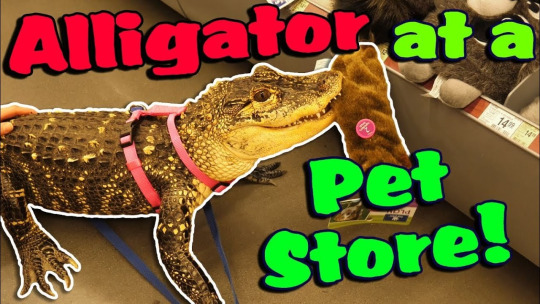
Blowing smoke or vaping in a reptile’s face: This is animal abuse.
We get it. You vape. But reptiles have really primitive lungs- in fact, snakes only have one functional lung. Reptiles have really bad reactions to nicotine, THC, essential oil diffusion, smoke, and pretty much anything else that lets off a lot of VOCs. It’s not funny, it’s not cute, and it’s always bad when somebody is smoking or vaping around a reptile.
Now like I said: you can’t learn everything from a single TikTok, youtube video, or instagram post! These are just some of the big red flags to watch out for. There’s lots of good reptile content out there that’s totally fine and safe and good- you just have to know how to spot the bad stuff! Thanks for reading!
6K notes
·
View notes
Link
Scientists working off the western coast of Mexico say they have found a previously unknown species of whale.
Three beaked whales were spotted last month by a team of scientists working with the Sea Shepherd Conservation Society near the San Benito Islands, some 300 miles from the US border, according to a press release published Tuesday.
The team had set out to try to find out what kind of whales were making an unidentified acoustic signal previously recorded in the area.
Beaked whale experts working alongside Sea Shepherd’s scientific department managed to take photographs and video recordings of the three whales, and also recorded their acoustic signals using an underwater microphone.
Continue Reading.
12K notes
·
View notes
Text





European Nightjar (Caprimulgus Europaeus), female, from a banding. Jerusalem bird observatory (JBO). 6.5.20
510 notes
·
View notes
Video
Nah fam yall are wrong. This is predatory behavior. The birb is harassing the hedgehog bc it wants to *eat it*.
A bird explaining to a hedgehog crossing so it doesn’t die.
367K notes
·
View notes
Text
October 20, 2020: Transients- Southwest of Bechey Head

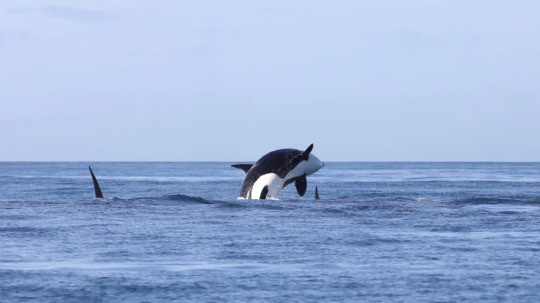





T046E and T137A

T046B1A and T046B1B

T046B4


T046B1B


T046B2, T046B, T046B4, T137, T046, T046E, T0137A

T046B1 and T046B1B


T137A, T046E, and T046

T046B1, T046B1A, and T046B1B

T046B2, T046B, T046B6, T046E, and T137A

T046D

T137, T046B, T046B4, T046B2

Photo Credit to the Center for Whale Research Encounter #56 - Oct 20, 2020
138 notes
·
View notes
Photo
YIKES that's sad as fuck
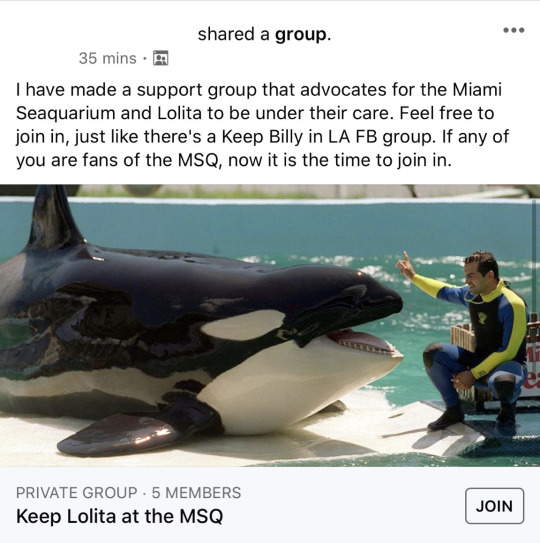
But why? Why does anyone want Toki to be kept in her current conditions? Even a good amount of procaps are against that.
MSQ obviously has no intentions of expanding her tank or anything remotely beneficial to her. Why are people in favor of this?
Then again, your stupid group only has 5 idiots.
⭐Mod Star⭐
30 notes
·
View notes
Text
If you handle small mammals without gloves, you are not a good wildlife rehabilitator.
If you are not able to recognize symptoms of common diseases, you are not a good wildlife rehabilitator.
If you kiss, allow to climb on your clothes, or pet the animals, you are not a good wildlife rehabilitator.
If you allow your domesticated pets to interact with your wildlife, you are not a good wildlife rehabilitator.
If you do not have protective measures in place for cases of distemper, and rabies, and other endemic diseases, you are not a good wildlife rehabilitator.
If you do not have a protective space away from your personal living quarters where you can take care of your patients including medication, bedding, feed and protocols to keep things sterile?
You are not a good wildlife rehabilitator.
1K notes
·
View notes
Note
Sorry, I still don't completely understand your stance on T&E. If there's a colony of feral cats existing in a place, aren't they essentially wild animals at that point? Like, measures can be taken to control the population, but shouldn't they be allowed to just live and die as other wild animals are rather than preemptively killing them?
No, they aren’t wild animals - they’re feral domestic animals that haven’t been socialized, they’re an invasive species which cause massive damage to the local ecosystems as well as being, at best, a nuisance and at worst a threat to public health.
Although not as widespread, some areas have a problem with populations of feral dogs - they’re still dogs, they haven’t reverted back to wolves. The same as applicable to feral cats, they haven’t transformed into their ancestral African Wildcat... they’re still a Domestic Cat.
3K notes
·
View notes
Text

Rest easy Tumbo, you inspired so many and you will be greatly missed
414 notes
·
View notes
Text
Some of y’all “eco” tumblr users: Omg, I love animals and I am really into conservation! Save the Bees! Green energy 4 ever! PETA is bad!
Me: That’s great :) it’s nice that you care about conservation:)
… but do you guys mind if you keep your cats indoors sometimes or on a leash? They’re really destructive for the ecosystem and the cats health itself! and maybe don’t interfere with conservational culling against ferals and invasive species since its a necessary evil to save other native species?Also, it’s helpful if you don’t go completely eco-terrorist on some farmers and loggers, since peaceful co-operation and compromise is usually more helpful than forcing ordinary working people onto protectionist measures, and in some cases farming/logging/gamekeeping/trophy hunting helps conservation as well.
Y’all:

16 notes
·
View notes
Text
oh, i have to tell you guys about Owha because i love her so much

Owha is a leopard seal that has been visiting New Zealand waters since roughly 2012 and is now pretty much a permanent resident who just cruises between different harbours and bays

Owha is short for her Māori name “He owha nā ōku tūpuna” which translates to mean “treasured gift from our ancestors”
she’s a bit of a local celebrity - leopard seal sightings are reported to a team of marine biologists in NZ, and they give us all the good Owha updates about where she is and what she’s doing + photos people have taken (she’s identifiable by two scars on her flank)

she’s also been a source of quite a bit of drama too - she’s very friendly and inquisitive and playful. she’s unfortunately deflated a few inflatable boats in the harbour as well as occasionally pulled pieces off of boats. as a result, the boaties have demanded she be sedated and returned to antarctica
late last year/early this year, someone shot owha in the face, which was extremely upsetting to say the least. what I am glad to report though is that she’s made a full recovery and is still doing her thing!

Owha continues to be an New Zealand icon who is surprisingly pleasant to the locals she encounters, and overall is living her best life
7K notes
·
View notes









